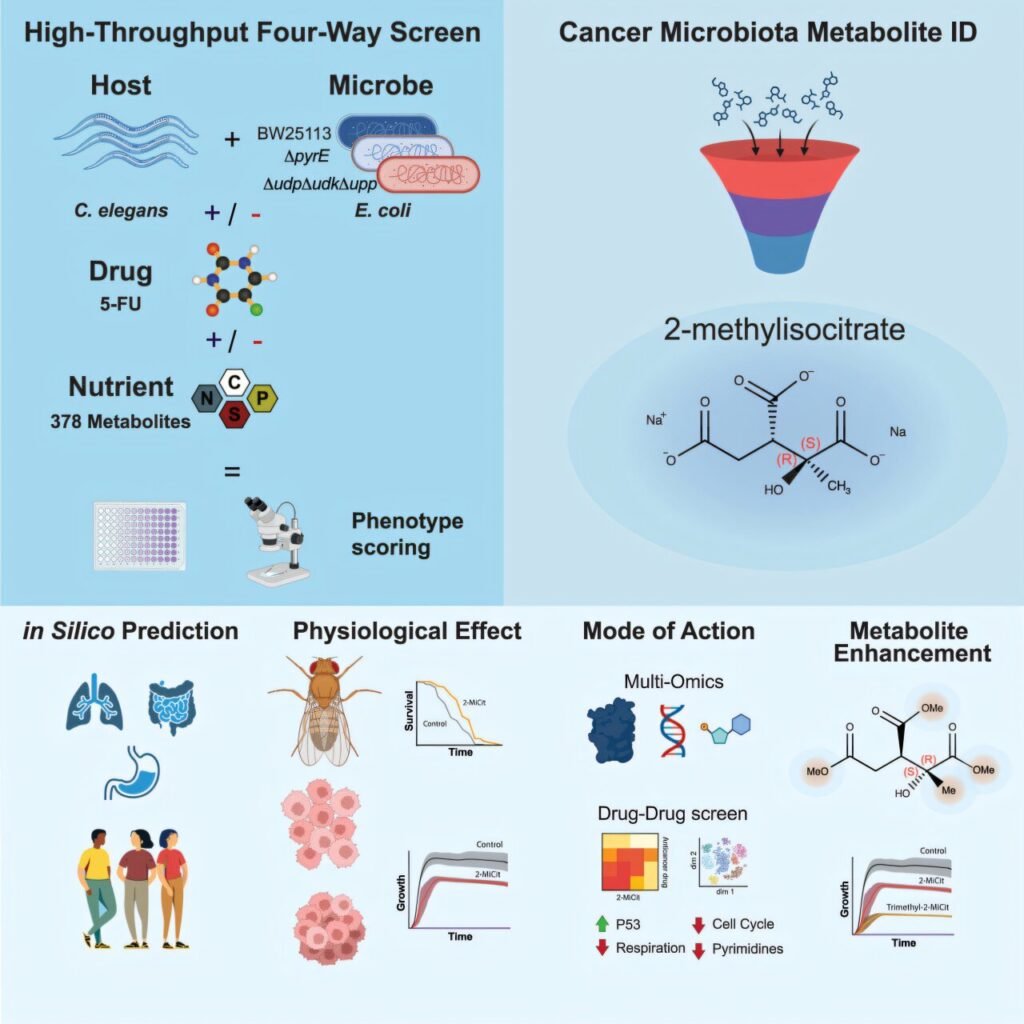An exciting new breakthrough in cancer research has been made by an international team of scientists led by researchers at the MRC Laboratory of Medical Sciences (LMS), Imperial College London, and the University of Cologne. They have discovered that microbes associated with tumors produce a molecule that can control cancer progression and enhance the effectiveness of chemotherapy.
While most people are aware of the microbes that reside on the skin or in the gut, recent discoveries have revealed that tumors also harbor unique communities of bacteria. Scientists are now exploring how these tumor-associated bacteria can impact tumor growth and the response to chemotherapy.
A recent study published online in Cell Systems has shed light on this phenomenon, identifying a potent anti-cancer metabolite produced by bacteria associated with colorectal cancer. This discovery paves the way for new strategies in cancer treatment, including the development of novel drugs that could augment existing therapies.
Through a comprehensive screening approach involving over 1,100 conditions in C. elegans, the researchers found that the bacteria E. coli produces a molecule known as 2-methylisocitrate (2-MiCit) that can enhance the effectiveness of the chemotherapy drug 5-fluorouracil (5-FU). Computer modeling confirmed that the microbiome of tumor-associated bacteria in patients is also capable of producing 2-MiCit. Further experiments using human cancer cells and a fly model of colorectal cancer demonstrated that 2-MiCit exhibits potent anti-cancer properties and can prolong survival in flies.
Professor Filipe Cabreiro, head of the Host-Microbe Co-Metabolism group at the LMS, highlighted the significance of the findings, stating, “We’ve known that bacteria are associated with tumors, and now we’re starting to understand the chemical conversation they’re having with cancer cells. We found that one of these bacterial chemicals can act as a powerful partner for chemotherapy, disrupting the metabolism of cancer cells and making them more vulnerable to the drug.”
The study revealed that 2-MiCit functions by inhibiting a key enzyme in the mitochondria of cancer cells, leading to DNA damage and activating pathways that impede cancer progression. This multi-faceted approach weakens cancer cells and synergizes with 5-FU, resulting in a significantly more effective cancer cell kill rate compared to either compound alone.
Dr. Daniel Martinez-Martinez, the lead author of the study, expressed his excitement about the findings, stating, “Microbes are an essential part of us. That a single molecule can exert such a profound impact on cancer progression is truly remarkable, and another piece of evidence on how complex biology can be when considering it from a holistic point of view. It is really exciting because we are only scratching the surface of what is really happening.”
In collaboration with medicinal chemists, the researchers have also developed a synthetic version of 2-MiCit that demonstrates even greater efficacy in killing cancer cells. This highlights the potential for developing new drugs based on natural microbial products.
These groundbreaking discoveries underscore the influence of the cancer-associated microbiome on tumor progression and the potential of microbial metabolites to enhance cancer treatments. Furthermore, these findings emphasize the importance of personalized medicine, taking into account not only the patient but also their microbial composition.
In conclusion, the study published in Cell Systems represents a significant step forward in understanding the intricate relationship between microbes, cancer cells, and chemotherapy. By harnessing the power of microbial metabolites, researchers have unlocked a promising avenue for improving cancer treatment outcomes.


